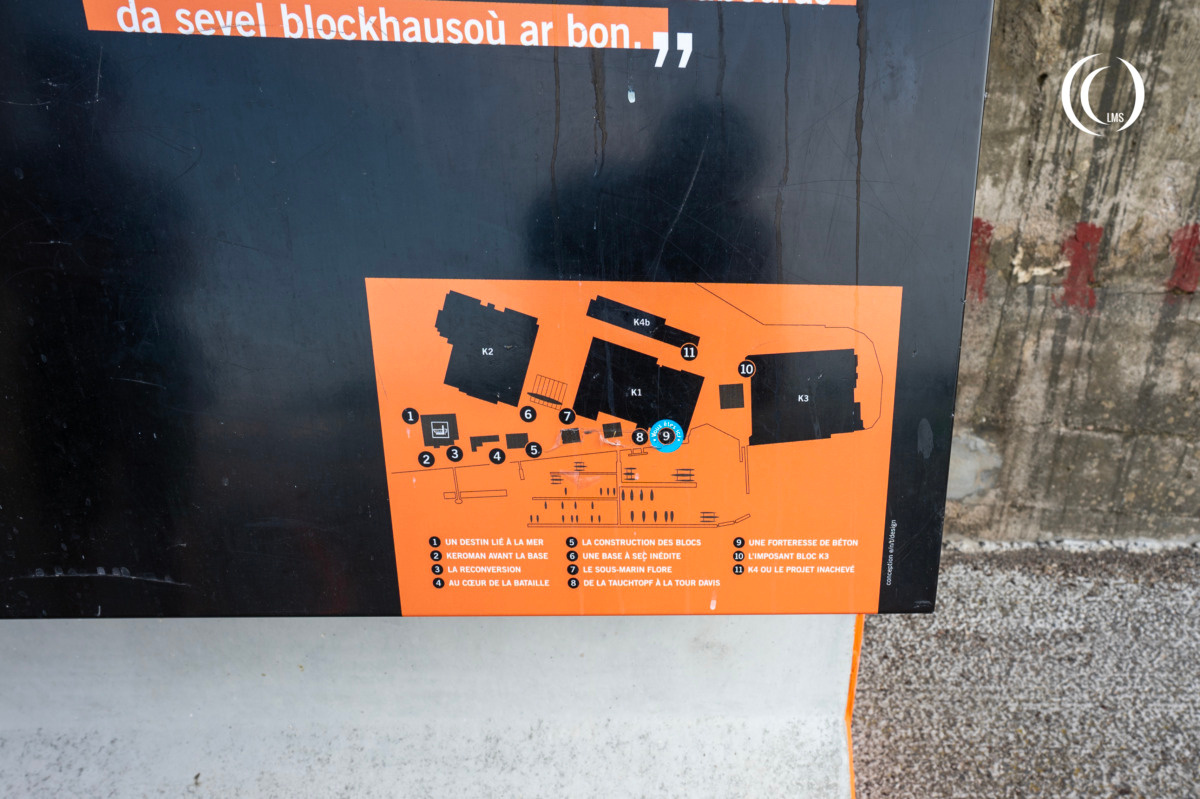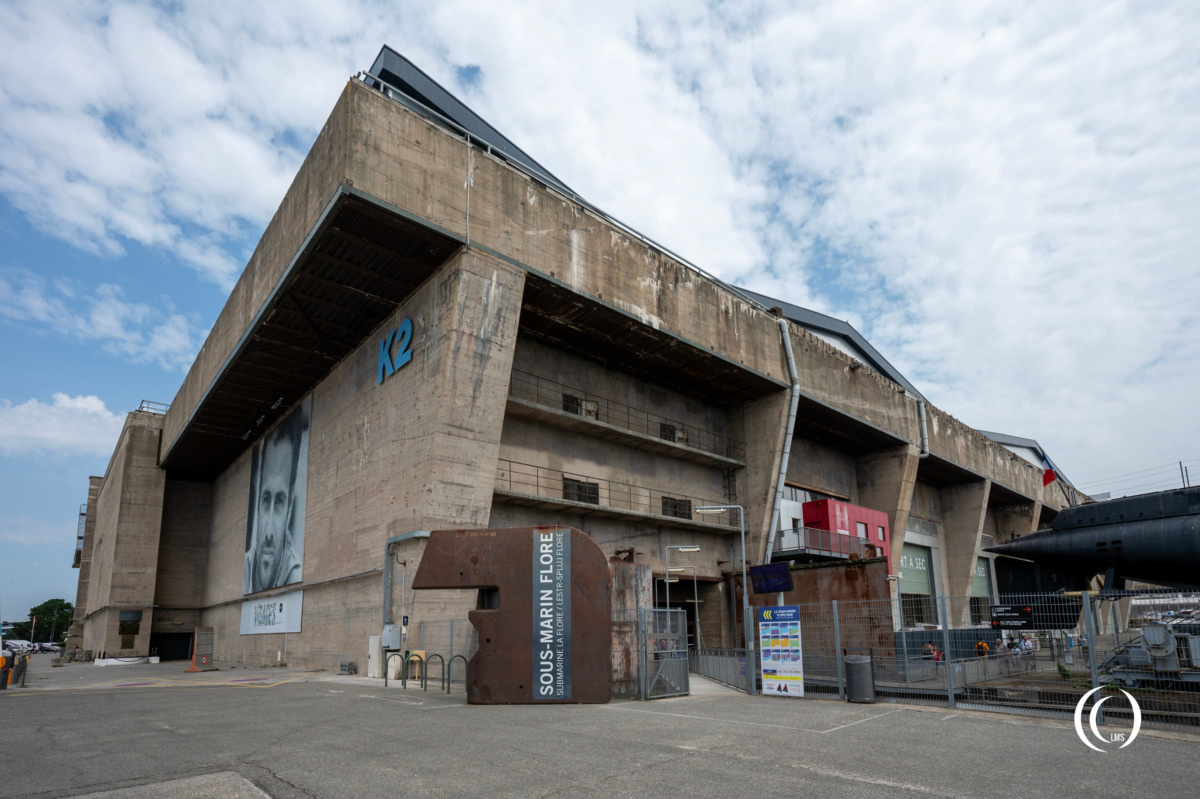
With the German invasion of France in 1940 came a great opportunity for U-boat commander Karl Dönitz to expand the range of his force by using French ports as submarine bases. The port of Lorient, Brittany on the Atlantic coast, which was already used by the French Navy before its surrender, was favoured to house what would become one of the largest Kriegsmarine U-boat bases in France during World War Two.
Construction

Even before the first phase of the construction of the impressive U-boat bunker Keroman 1 (K1) and the Dom T5 and T6 bunkers was completed, the work on an even larger bunker named Keroman 2 (K2) was started in May 1941. The structure had a length of 145.5 meters, a width of 123 meters and a height of 18 meters. The bunker was protected by a 3.5 meters thick concrete roof.
Supervised by Organisation Todt (OT) and using thousands of Forced Labourers, the construction of the bunker was finished in December 1941.

Interior
The bunker interior counted seven u-boat repair bays designated K6 to K12, a storage shelter for both the u-boat transit platforms designated K6a and barracks that offered room for a thousand men. These barracks were in the upper levels above the platform storage of K6a. The picture underneath shows the giant bomb-proof doors of the K6a platform storage and the armored doors and walkways with railings of the barracks above it.
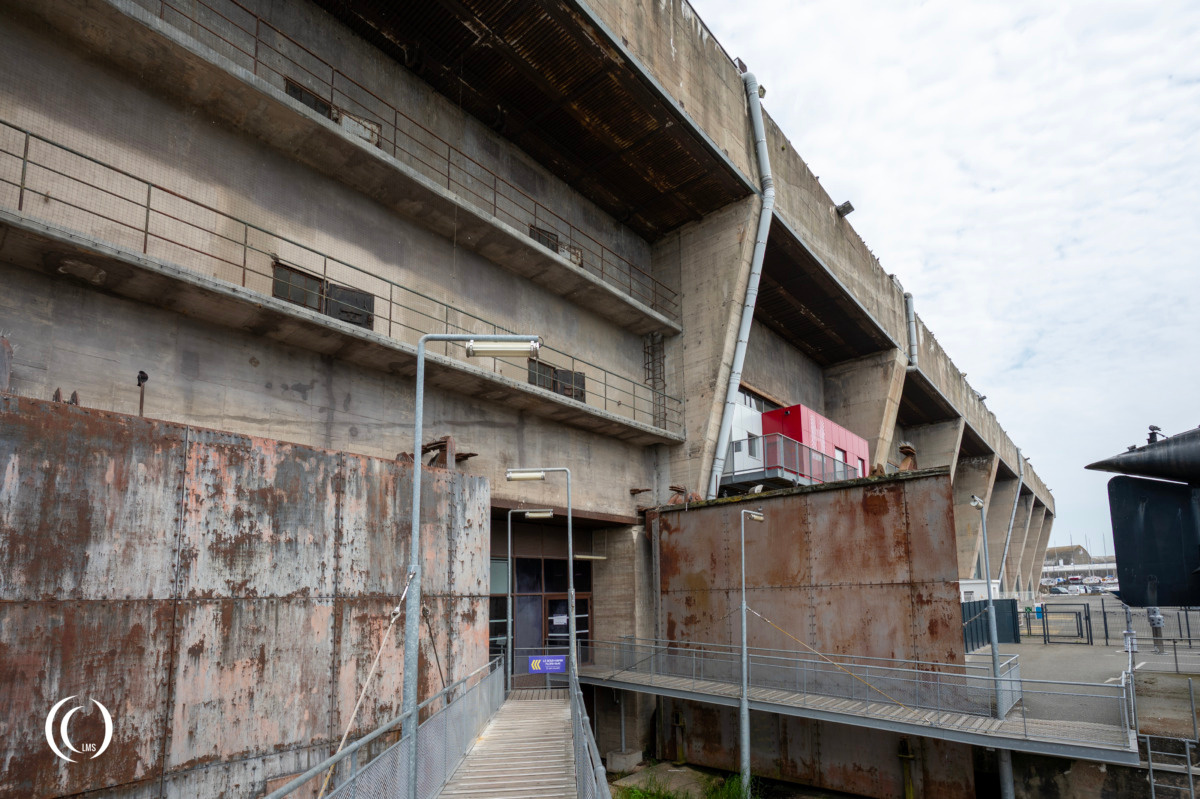
Operation
Placed directly opposite of Keroman 1, both U-boat bunkers used the 200 meters long slipway leading up from the water together with a mobile platform system in between them to move the submarines into their repair bays.
You can find more information about the submarine transportation system here.

Allied bombings
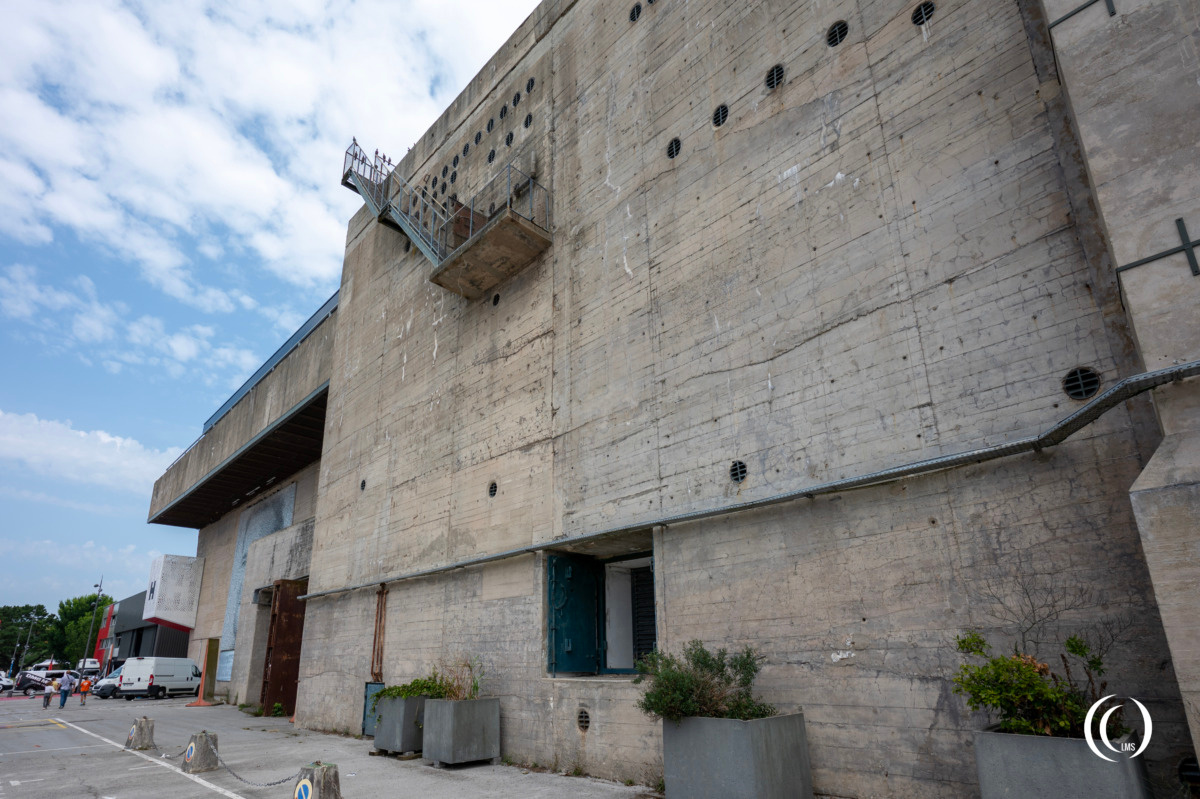
Admiral Dönitz wasted no time in using the strategic advantage of the port of Lorient at the Atlantic coast. As a first move he established two fleets of U-boats to form a blockade against England starting from July 1940. Strengthened by the large repair bunkers and installations, Lorient provided a perfect base for U-boat repairs and restocking to support his wolf pack strategy and attack Allied convoys.
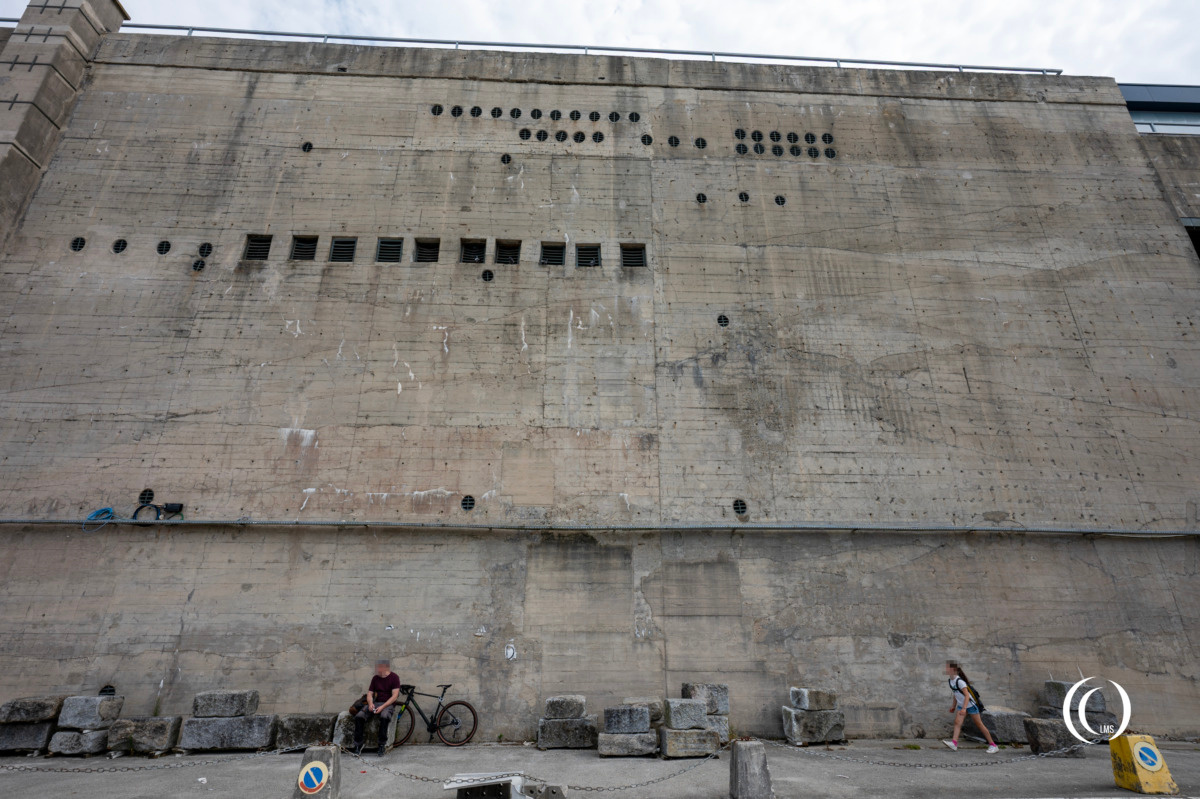
Although the Allies intensified their bombing raids on the German U-boat base near the end of 1942 and subsequently even largely destroyed the city of Lorient at the beginning of 1943, the damage to the structures itself stayed relatively low and the base continued to operate until the surrender of the garrison of Lorient in May 1945.
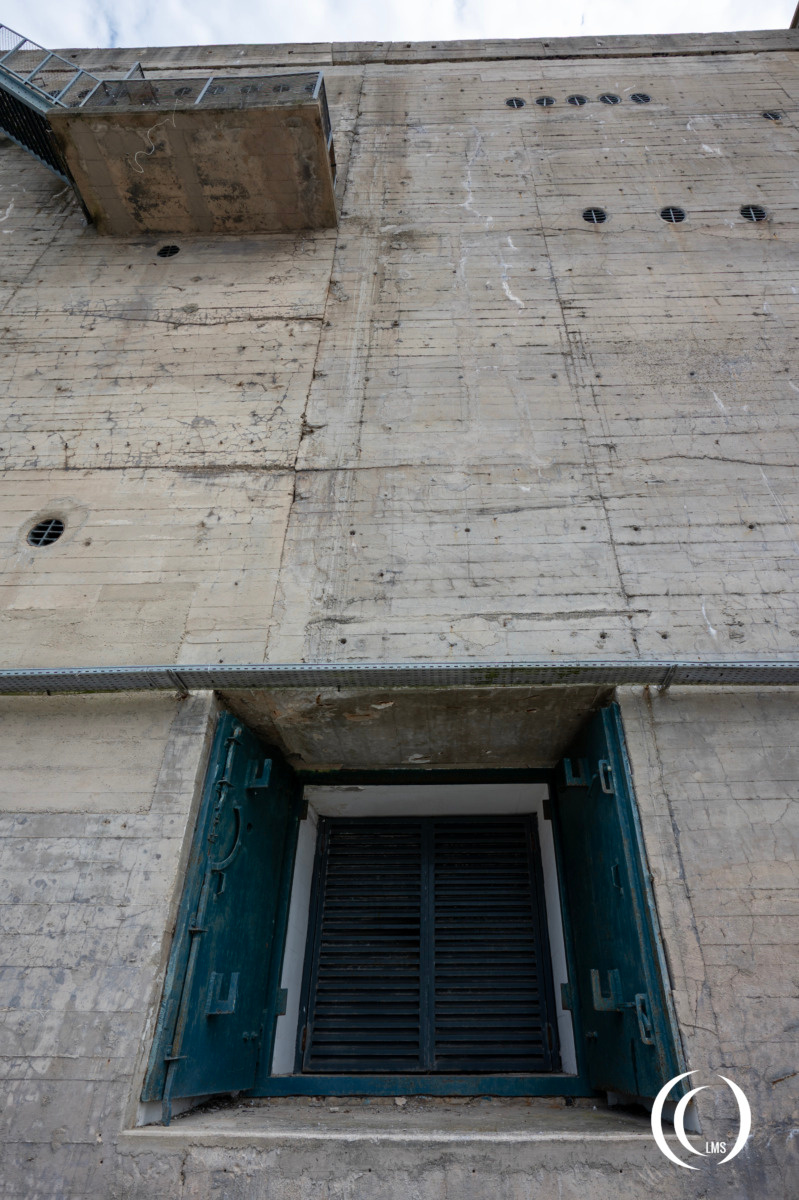

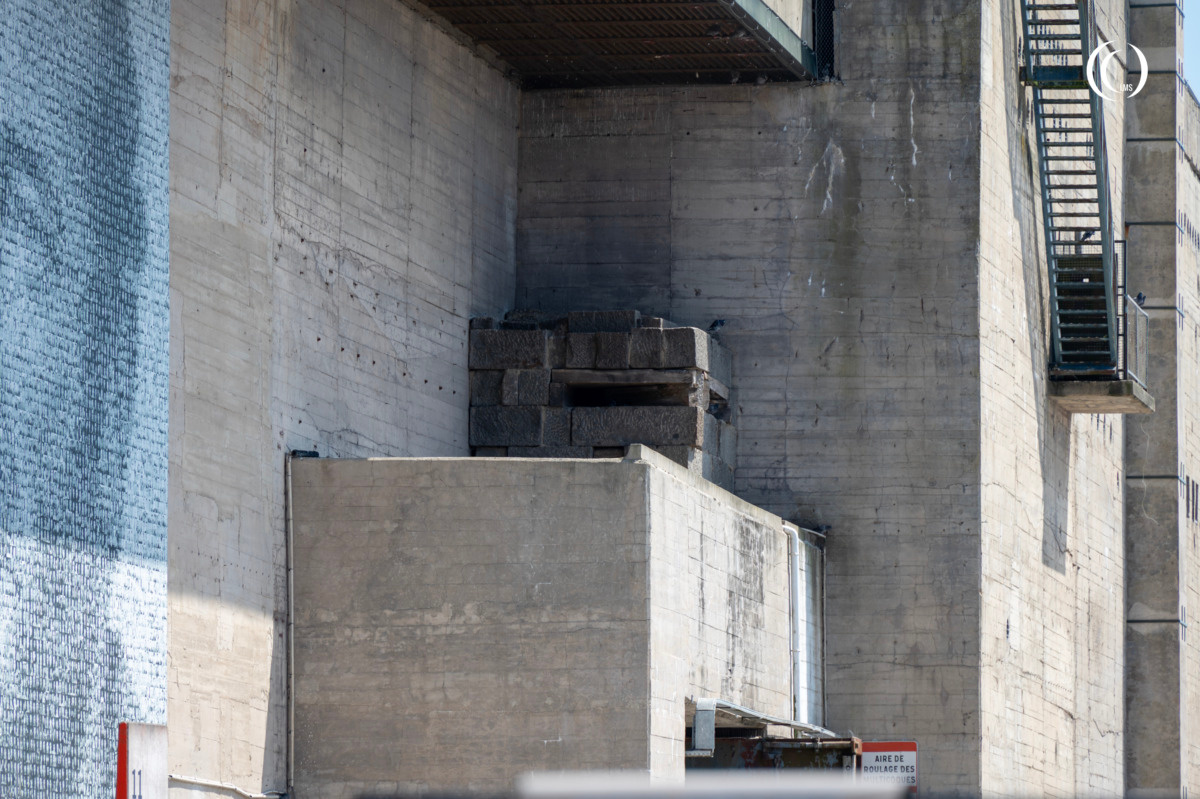
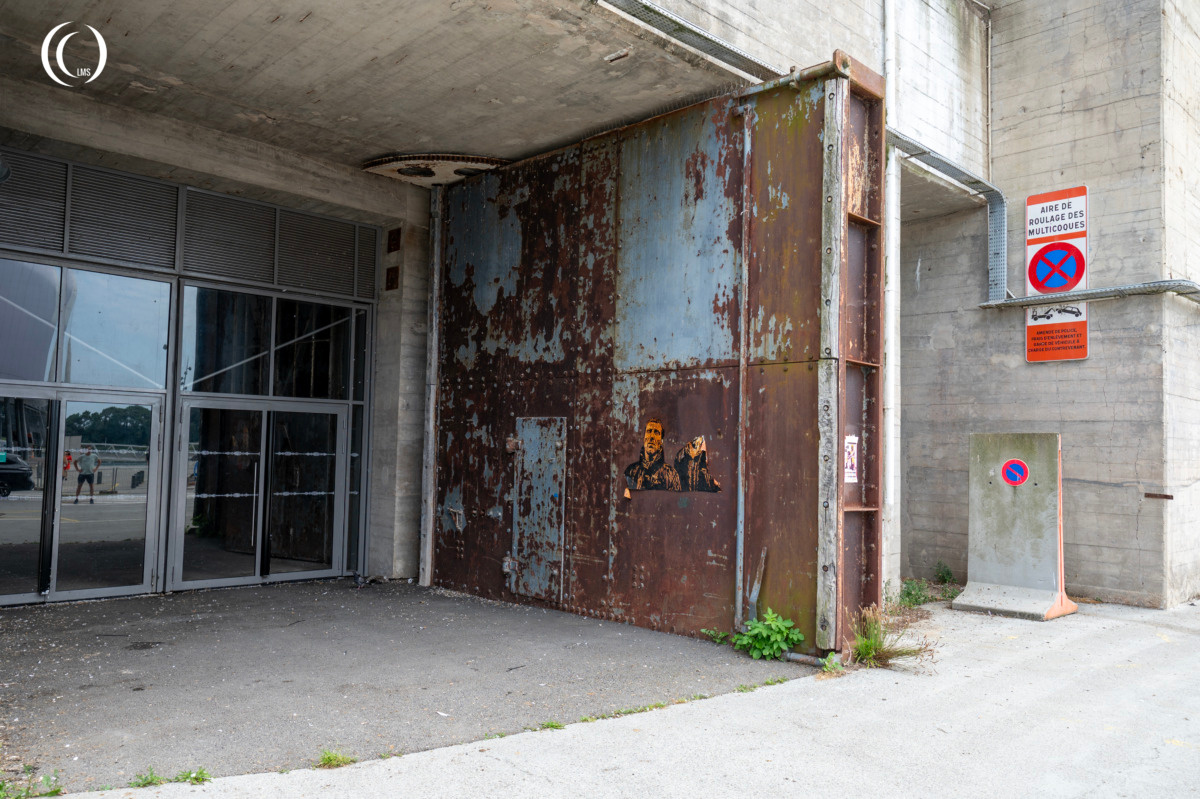
Restoration
After 70 years, the concrete of the rapidly built structures was starting to deteriorate. The reinforced steel within the concrete oxidised and split the surface layer, creating cracks and posing a danger to the public with falling debris. Water began to infiltrate the structure and caused even more damage, speeding its deterioration.
So a restoration process was undertaken to clean and treat the defects of the K2 walls, restoring the concrete to its original appearance. Thanks to this the Keroman 2 bunker is now preserved for future generations.
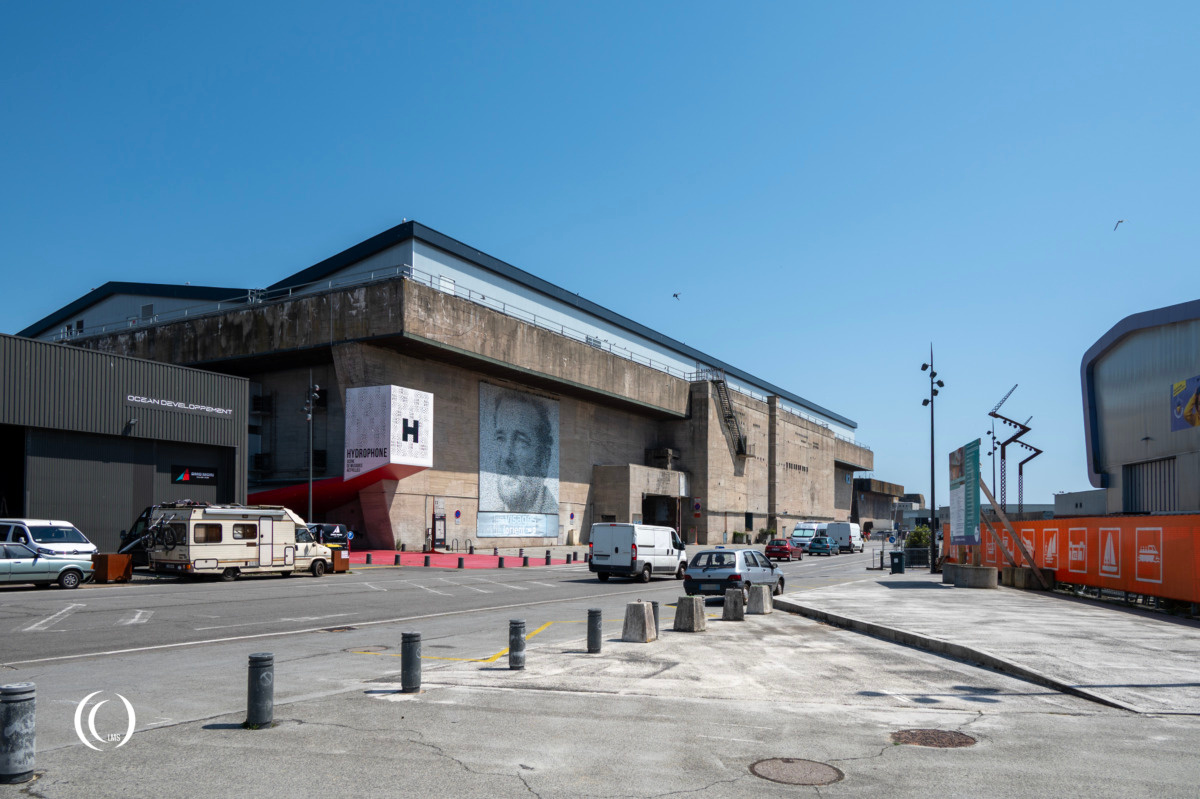
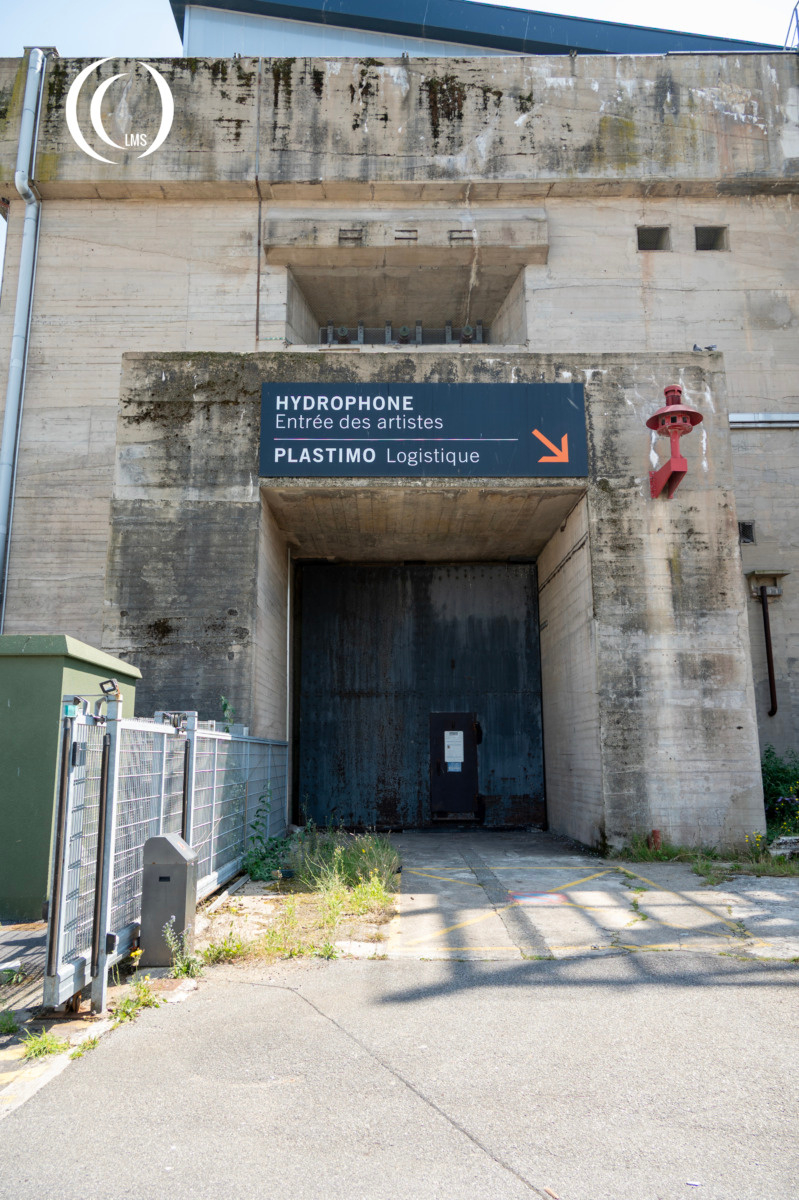
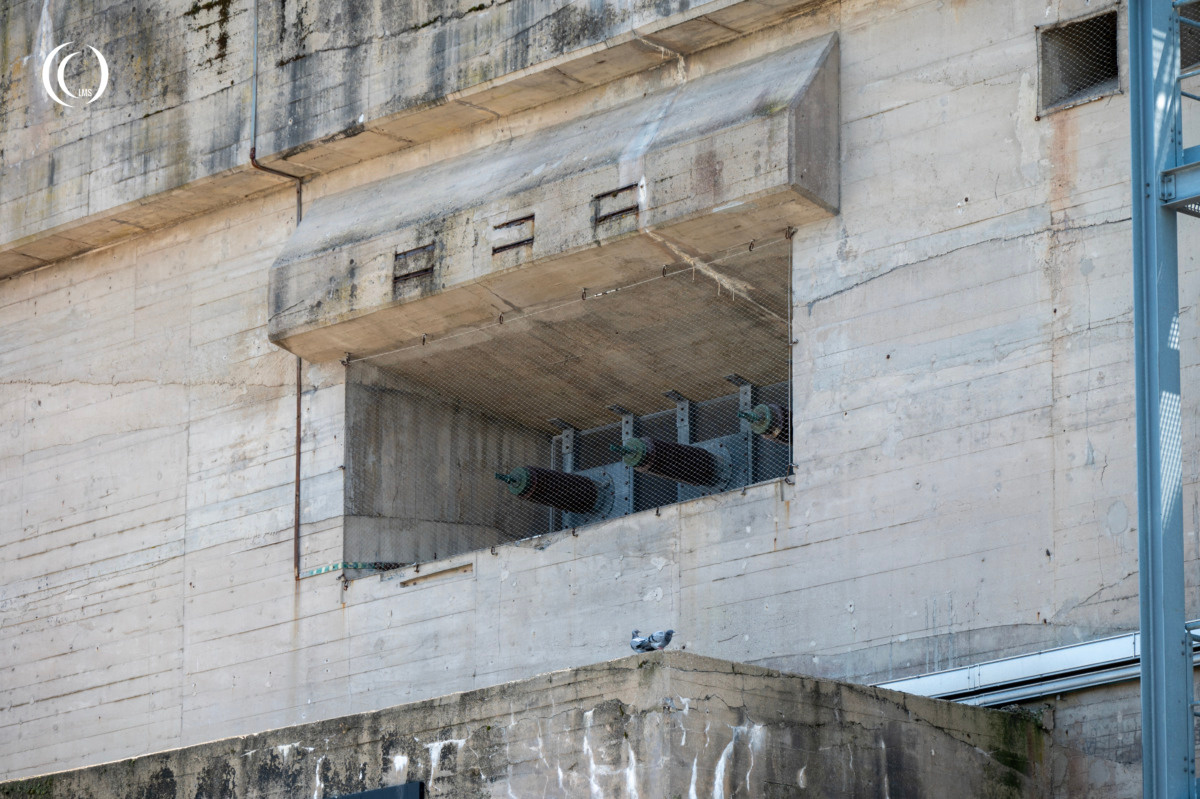
Visit
You can walk around the massive structure and the other U-boat bunkers Keroman 1 and Keroman 3. The interior of Keroman 2 is only partly open to the public. Although some areas are used by companies and therefore restricted, Keroman 2 also houses an exhibition about the history of the Lorient U-boat base and an event space called the Hydrophone.
